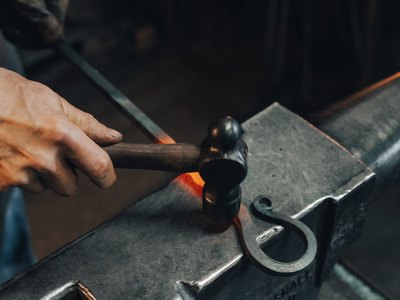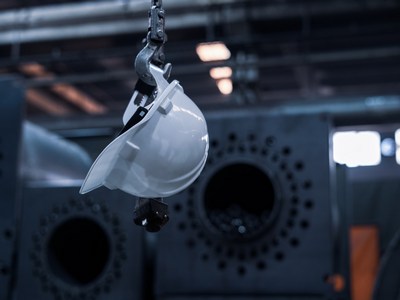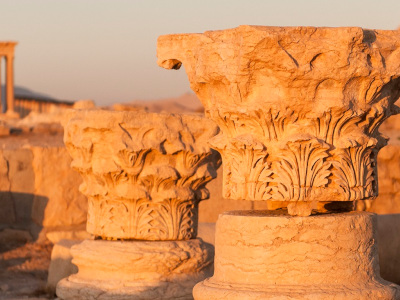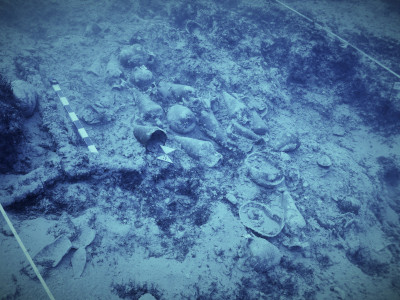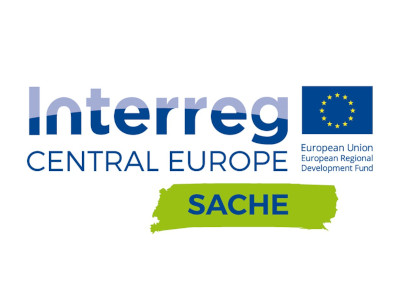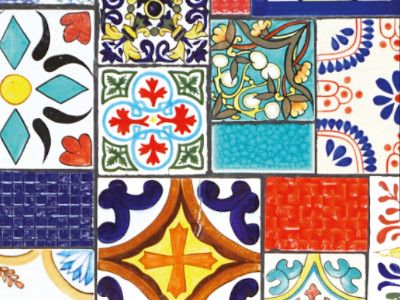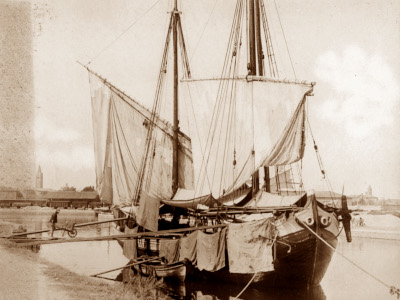Digital and Cultural Heritage

Research Institute for Digital and Cultural Heritage
Creative arts, cultural heritage and digital humanities
Cross-disciplinary approaches to human culture, languages and technology, - such as data processing, ICTs, conservation science, chemistry and biology – unveil new meanings and create new research fields such as digital humanities and heritage science. These innovative approaches change the way cultural heritage and shared values are studied, preserved, restored, managed, disseminated or even created. Creative industries have in fact emerged as a key driver of economic growth, where user-driven innovation plays a leading role.
Keywords
Big data, Creative industries, Cultural heritage, Digital humanities, Interpretation of the past, Landscape archaeology, Library and archival science Museum studies, Reflective societies, User-driven innovation
Coordinator
Research facilitator
Members
- BALDACCI Cristina
- BALLIANA Eleonora
- BANZATO Monica
- BARBATI Maria
- BASSI Shaul
- BELTRAME Carlo
- BERTELE' Matteo
- BORRONI Massimiliano
- BUCCIARELLI Ritamaria
- BURINI Silvia
- BUZZONI Marina
- CALAON Diego
- CALCAGNO Monica
- CALVELLI Lorenzo
- CAMATTI Nicola
- CARPINATO Caterina
- CASARIN Francesco
- CAVALLO Federica
- CECCATO Bertilla
- CESIRI Daniela
- CICILIOT Valentina
- CORO' Paola
- CORRO' Elisa
- COTTICA Daniela
- CRESCI Giovannella
- CRISTANTE Nicolò
- CRISTOFORETTI Simone
- CULEDDU Sara
- DALL'AGLIO Stefano
- DALLA GASSA Marco
- DASKAS Beatrice
- DE LUCA Margherita
- DONELLI Chiara Carolina
- DREON Roberta
- ELEUTERI Paolo
- FAVA Valentina
- FERRARESE Pieremilio
- FINA Maria Elisa
- FISCHER Franz
- FRANCO Susanne
- FRANK Martina
- FUNARI Stefania
- GAMBACURTA Giovanna
- GHENO Giulia
- GHEZZO Elena
- GIORGI Alessandra
- GRANDI Elena
- GUDELJ Jasenka
- HAROUTYUNIAN Sona
- IZZO Francesca Caterina
- JONAITYTE Inga
- KRAPOVA Iliana
- LAPPA Daphne
- LEBANI Gianluca
- LUCCHELLI Tomaso Maria
- LUCCHINI Alice
- MANTOAN Diego
- MARINETTI Anna
- MAROTTA Saretta
- MARTINUZZI Paola
- MATIJASIC Ivan
- MEDAS Stefano
- MELONIO Alessandra
- MENEGALE Marcella
- MIGNOSA Valentina
- MILANO Lucio
- MITRANO Filomena
- MONTEFUSCO Antonio
- MOOLHUIJSEN Nicole
- MèGE Frédéric
- NUCCIO Massimiliano
- OJEDA CALVO Maria Del Valle
- OTTOMANO Vincenzina Caterina
- PANGALLO Francesca
- PANOZZO Fabrizio
- PEROZZO Paola
- PILUTTI NAMER Myriam
- PITTARELLO Fabio
- QUAGLIATI Noemi
- RAINES Dorit
- RASTELLI Sabrina
- RAVEGGI Alessandro
- RICCIONI Stefano
- RIGOBIANCO Luca
- ROFENA Cecilia
- ROHR Francesca
- ROSIN Umberto
- ROSSETTO Luca
- ROVA Elena
- RUSI Michela
- RUSSO Salvatore
- SAPIENZA Valentina
- SBARRA Stefania
- SERRAGIOTTO Graziano
- SGARBI Marco
- SICARI Ilaria
- SOFO Giuseppe
- SOMMERSCHIELD Thea
- SPALIVIERO Camilla
- SPERTI Luigi
- STERN Claudia
- TAROCCO Francesca
- TONGHINI Cristina
- TORSELLO Andrea
- TRAVIGLIA Arianna
- TRIPODI Rocco
- VALLERANI Francesco
- VAN DER BORG Jan
- VASCON Sebastiano
- VENTRA Stefania
- VIAN Giovanni
- WARGLIEN Massimo
- ZANETTI Melania
- ZANON Giulia
- ZAVA Alberto
- ZAZZARA Gilda
- ZENDRI Elisabetta
- ZITTEL Claus Kurt
High-impact and award-winning projects
Hephaestus - Heritage in Europe: new techHologies in crAft for prEserving and innovaTing fUtureS
Globalised markets, advancements in technology, and changes in the manufacturing have put at risk traditional crafts techniques, which are in danger of disappearing. HEPHAESTUS will map this important knowledge and know-how of ancient techniques and materials, digitalise craft heritage to restore historic artefacts, preserve it in open archives, and mobilise it to innovate craft processes. HEPHAEUSTUS aims: (i) to revive and valorise traditional crafts by combining them with new and emerging cutting-edge technologies through innovative business models for craft sectors growth; (ii) to create a craft-technology driven methodology for bringing together traditional know-how with new cutting edge technologies, circular economy and New Bauhaus principles to innovate sustainably craft processes; (iii) to explore visions for the role of craft in the future, integrating emerging technologies and contributing to the circular economy, by engaging craft communities in a participatory ideation process; (iv) to set up a life-long learning methodology, develop courses, programs, curricula, entrepreneurial and organisational skill sets to create jobs and revive enterprises where tradition meets the future; (v) to establish the first pioneering “Future of Craft” living lab at Bornholm, an action-oriented think tank for circular craft-driven design innovation (vi) and to establish sustainable craft-technology relationships by connecting research and heritage sites, cultural and creative sectors, institutions, universities and other research institutions, regional and national authorities, enterprises and other relevant stakeholders.
Website
Researcher: Fabrizio Panozzo
Duration: 01/04/2023 - 31/03/ 2027
Deindustrialization and the Politics of Our Time
Brexit, the election of Donald Trump as US President, and the rise of right-wing populism in Europe have refocused attention on deindustrialized working-class communities, positioning them as central to an understanding of the times we live in. While the political revolt in deindustrialised places is often understood as a phenomenon that crosses borders, there is still very little transnational comparative research on deindustrialisation and its legacies. Moreover, the significance of deindustrialisation has often been framed by over-simplified or stigmatising media narratives about post-industrial places. These are long-term processes, so to understand them we need the deeper temporal perspective that historical research can offer. The overall goal of this reseacrh project is to understand deindustrialization's "half-life" in transnational and comparative perspective, its causes, the responses to it, its effects, and its legacies. The project forges connections between the leading researchers and partners in deindustrialization studies across six countries, a transnational community of practice, as well as a space where the next generation of deindustrialization researchers is nurtured and connected across borders.
Researcher: Gilda Zazzara
Time Machine: Big data of the past for the future of Europe
The project Time Machine will give Europe the technology to strengthen its identity against globalisation, populism and increased social exclusion, by turning its history and cultural heritage into a living resource for co-creating its future. The FET Flagship will develop a large-scale digitisation and computing infrastructure mapping millennia of European historical and geographical evolution, transforming kilometres of archives, large collections from museums and libraries, and geo-historical datasets into a distributed digital information system. To succeed, a series of fundamental breakthroughs are targeted in Artificial Intelligence and ICT, making Europe the leader in the extraction and analysis of Big Data of the Past.
Time Machine will bring a new era of open access to sources, where past and on-going research are open science. A dissemination programme aims to further strengthen the rapidly growing ecosystem, currently counting 95 research institutions, most prestigious European cultural heritage associations, large enterprises and innovative SMEs, influential business and civil society associations, and international and national institutional bodies.
Project website / EU Cordis database
Researcher: Dorit Raines
Duration: 01/03/2019 - 29/02/2020
Funding: Horizon 2020 Excellent Science: Future and Emerging Technologies (FET)
NETCHER: Stopping illicit trade and protection of endangered cultural heritage
The last decades have witnessed a variety of initiatives promoted by a diverse set of actors engaged in the protection of endangered cultural heritage and in stopping illicit trade, initiatives that have tried to bring solutions, remediation, methods and approaches to tackle looting and trafficking. NETCHER (NETwork and digital platform for Cultural Heritage Enhancing and Rebuilding) seeks to address the complex challenge of harmonising and bringing together these worthy, but often disconnected initiatives by using a participative approach that will result in the establishment of a structured network (defined as a Social Platform) drawing together a broad range of players such as international bodies, umbrella organizations, national governments, researchers, public policy makers, NGOs, as well as public and private foundations. The Platform will take charge of the systematizing and framing of all the emerging best practices in order to enhance and capitalize on the experiences of the partnership members at an international level for building a joint action plan with shared toolkits and a research and innovation roadmap.
Project website / EU Cordis database
Researchers: Cristina Tonghini, Arianna Traviglia
Duration: 01/01/2019 - 31/12/2020
Fundinig: Horizon 2020 Societal Challenges: Europe In A Changing World
Immersive Underwater Museum experience for a wider inclusion
Aim of the Underwater Muse project, coordinated by ERPAC of the Friuli Venezia Giulia Region, is the development of proposals for the valorization of the underwater archaeological heritage of the Italian and Croatian Adriatic coasts. In particular, the partners, respecting the guidances of the Unesco Convention on the Underwater Heritage, will promote the in situ maintenance of the sites and the organization of parks which allow the underwater visit of this heritage. The digital virtual visit of the underwater sites, a solution which guarantees a completed sharing of this particular heritage, and the creation of a GIS platform for the dissemination of the most important sites, will be other important topics on which the team of Ca’ Foscari, coordinated by Carlo Beltrame, will work.
Website
Researcher: Carlo Beltrame
Duration: 01/01/2019 - 30/06/2021
Smart Accelerators of Cultural Heritage Entrepreneurship
The main objective of "SACHE" is to develop and deliver integrated local development strategies based on tools and approaches that would accelerate creative entrepreneurship within and around cultural heritage (CH). The project intends to expand and strengthen the role of CH sites, symbols and values by transforming them into “Smart Accelerators of Creative Heritage Entrepreneurship" thorough the development of a central European model. Museum, galleries, theatres and festivals will be conceived not only as sites of education or entertainment but also as accelerators, i.e. cultural engines that mobilize and nurture the energies of small creative business. This will expand the access to CH but also the production of value enhancing services, the development of innovative clustering of CCIs around each SACHE and the fostering of cross-sectorial cooperation with other industrial and service sectors especially in the digital technologies.
Website
Researcher: Fabrizio Panozzo
Duration: 01/01/2019 - 31/12/2021
Connections for a new creative industry system: SMATH
The cultural and creative (CC) sectors are some of Europe’s most dynamic sectors, however they suffer the lack of conjunctions between their CC components and are unable to access start-up capital and financing. Improving the synergies between the wealth of heritage traditions, values and symbols and the business environment can add to them economic value and fully exploit their economic potential. The project "SMATH - Smart atmospheres of social and financial innovation for innovative clustering of creative industries in MED area" intends to generate and strengthen “Smart Atmospheres” able to support the start-up and the development of clustering and SMEs in the CC sector, facilitating the access to “culture factories”, value enhancing services and joint cooperation among investors and public actors.
Website
Researcher: Fabrizio Panozzo
Duration: 01/01/2019 - 31/05/2020
Dancing Museums: the democracy of beings
In this period of accelerated change, there is an urgent need for professionalism, shared vocabulary and a coherent conceptual framework that makes sense of the many different approaches to audience engagement. In Dancing Museums - The democracy of being, individuals and arts organisations share, improve, develop and transfer skills and knowledge needed to broaden and deepen connections and relationships with audiences. If art focuses more on people, people will focus more on art. The project picks up on changes that need to happen on an organisational level to conceptualise, develop and test new tools for the arts sector to create meaningful experiences and sensitive encounters with the public, hence measuring and improving its social value and impact.
The practice-led research team, composed of artists, staff from dance organisations, museums and universities from 7 countries, looks at how the presence of dance can offer new ways of experiencing art and heritage and help audiences and visitors engage both intellectually and viscerally with artworks and art spaces. The learning happens locally and internationally.
Researchers of Ca’ Foscari University in Venice and Fondazione Fitzcarraldo follow the international activities to give language to the artistic practices observed and scientifically measure the impact on institutions, artists and how the new artistic products tested and developed change the perception of engagement of the audiences and their cultural behaviours.
Website
Researcher: Susanne Franco
Duration: 01/10/2018 - 31/12/2021
Protection, promotion and touristic valorisation of Adriatic maritime heritage
Arca Adriatica project, coordinated by the Primorje-Gorski Kotar region, will work on the valorization and dissemination, also for turistic aims, of the maritime cultural heritage of the Italian and Croatian coastal regions. Centres of excellence will be created for the documentation, conservation of the traditional boats and for the knowledge, also with digital tools, of the traditional boat-building techniques.
The team of Ca’ Foscari, composed by Francesco Casarin, engaged in the elaboration of a master plan for the development of this form of tourism, and Francesco Vallerani, as expert of inland waterways landscapes, is coordinated by Carlo Beltrame.
Website
Researcher: Carlo Beltrame
Duration: 01/01/2018 - 30/06/2021

